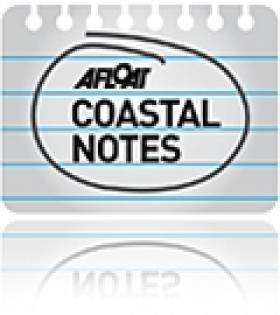Displaying items by tag: St Begnet's
Begnet’s Boat-Building Currach Project Bound for Dalkey Island
#Begnet'sBoats – A community-led project to build a pair of currachs in Dalkey, Co. Dublin is gaining momentum as locals participate in a goal to launch the boats from Coliemore Habour on 1 June, writes Jehan Ashmore.
The Begnet's Boats Project is the vision of local resident Liz Murray who was inspired to bring the community together in a creative approach and to reflect the rich maritime heritage of Dalkey and local saint of St. Begnet. There are two churches in her name, one located in the town and the other on the small island lying some 300m offshore.
Murray has assigned a team to construct the pair of 'racing' currachs and they are to be led by boat-builder Mark Reddon. In addition the community are invited to take part in accompanying projects, one in which includes a 'St. Begnet's Cookbook' which features seafaring recipes by Elaine Flood.
The highlight of the venture will be a parade of the boats which are to be carried upside down, as is the traditional manner, from Castle Street, the town's main street to the coast at Coliemore Harbour.
From there the currachs, to be named 'Naomh Beagnait 1 & 2' will ceremoniously be rowed if not raced! across Dalkey Sound to the island, where the first reference to St. Begnet on the island dates to 700 A.D.
Information in how to get involved including a reward scheme and fundraiser countdown campaign can be viewed by visiting: www.fundit.ie/project/begnets-boats-project-2013
It would seem that the only way to get to Dalkey Island these days is by privately-owned craft and as previously reported on Afloat.ie, Coliemore Harbour has not had access to a ferry boat service in recent years. The harbour has been the traditional embarkation point for generations.
Currently engineering consultants are carrying out a structural survey and report due to be completed around May. The consultants were contracted by Dun Laoghaire-Rathdown County Council who had deemed the harbour unsafe and not suitable for use by a commercial ferry operator.
The delay in restoring a licensed ferry service has led to a campaign by locals, businesses and community groups who have feared that an alternative longer term ferry service would operate instead from either Bulloch or Dun Laoghaire Harbour.





























































